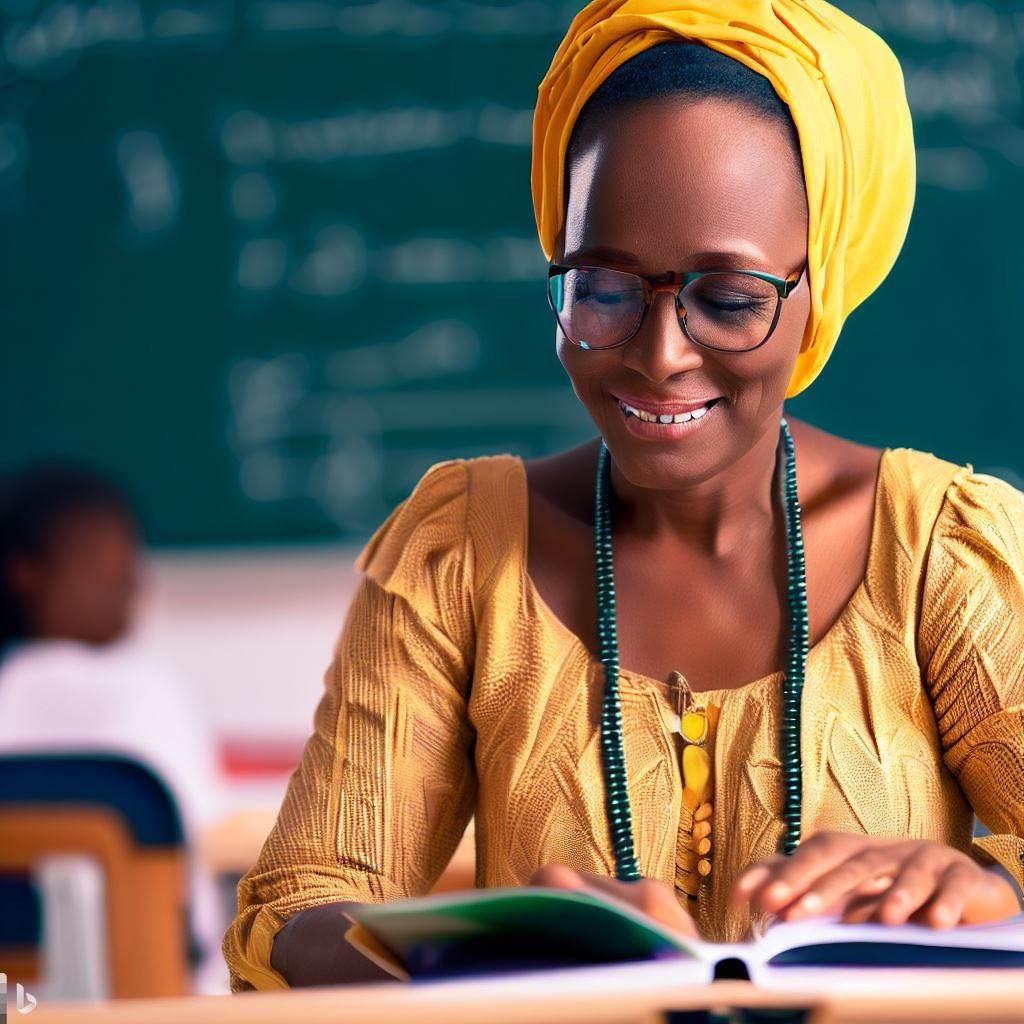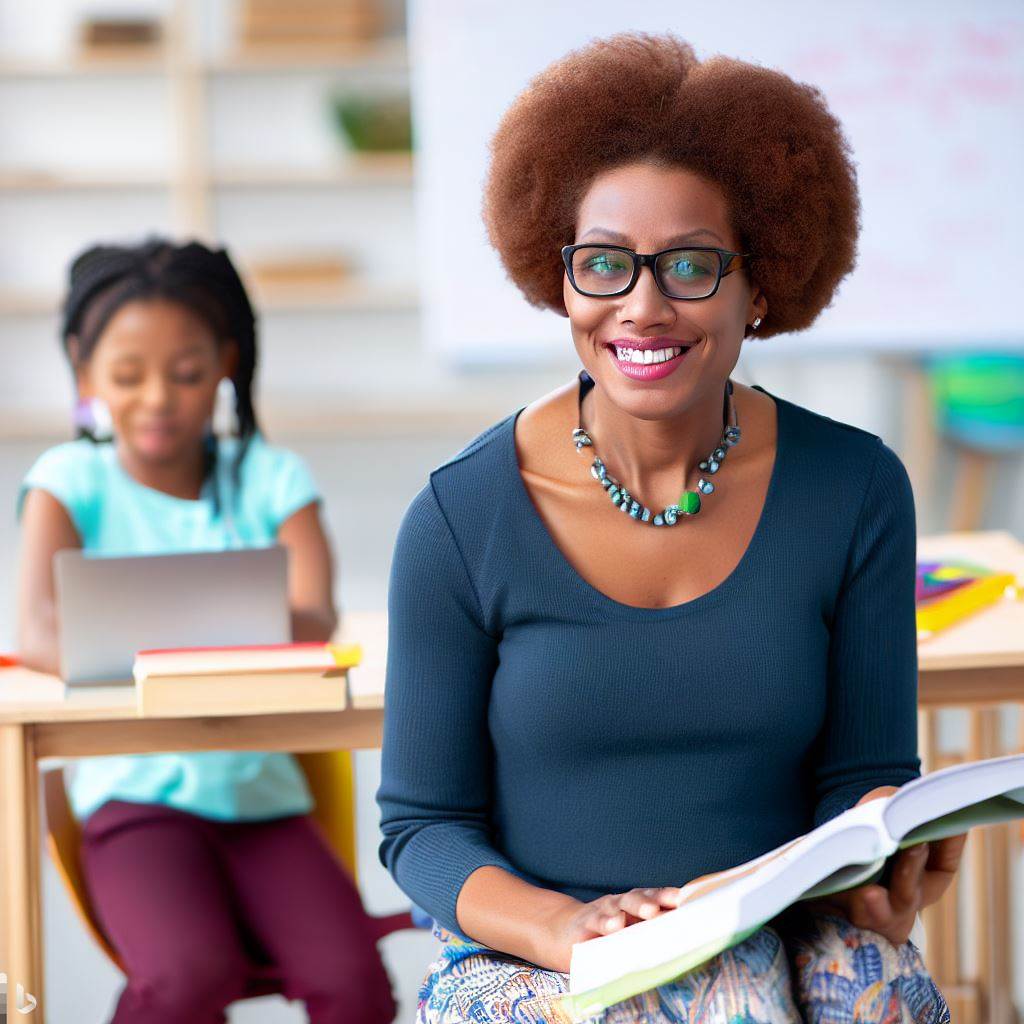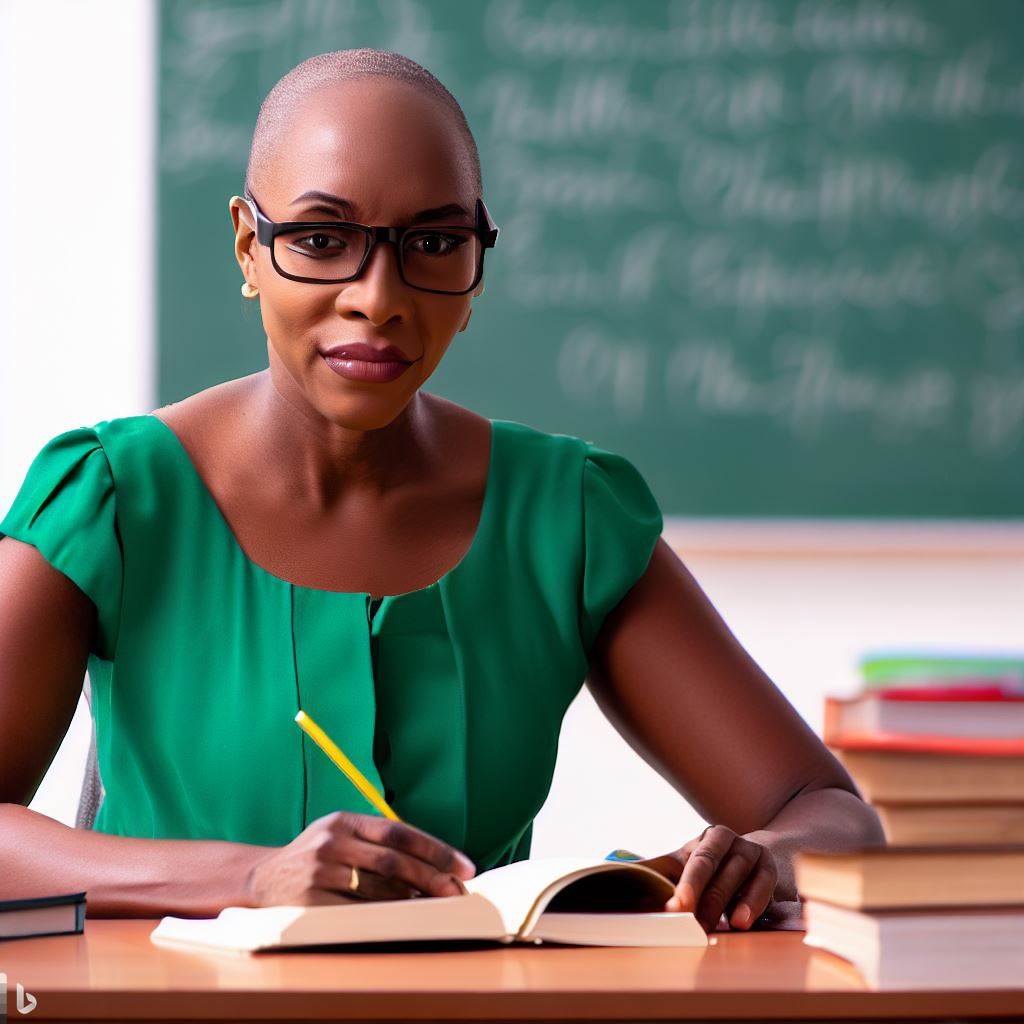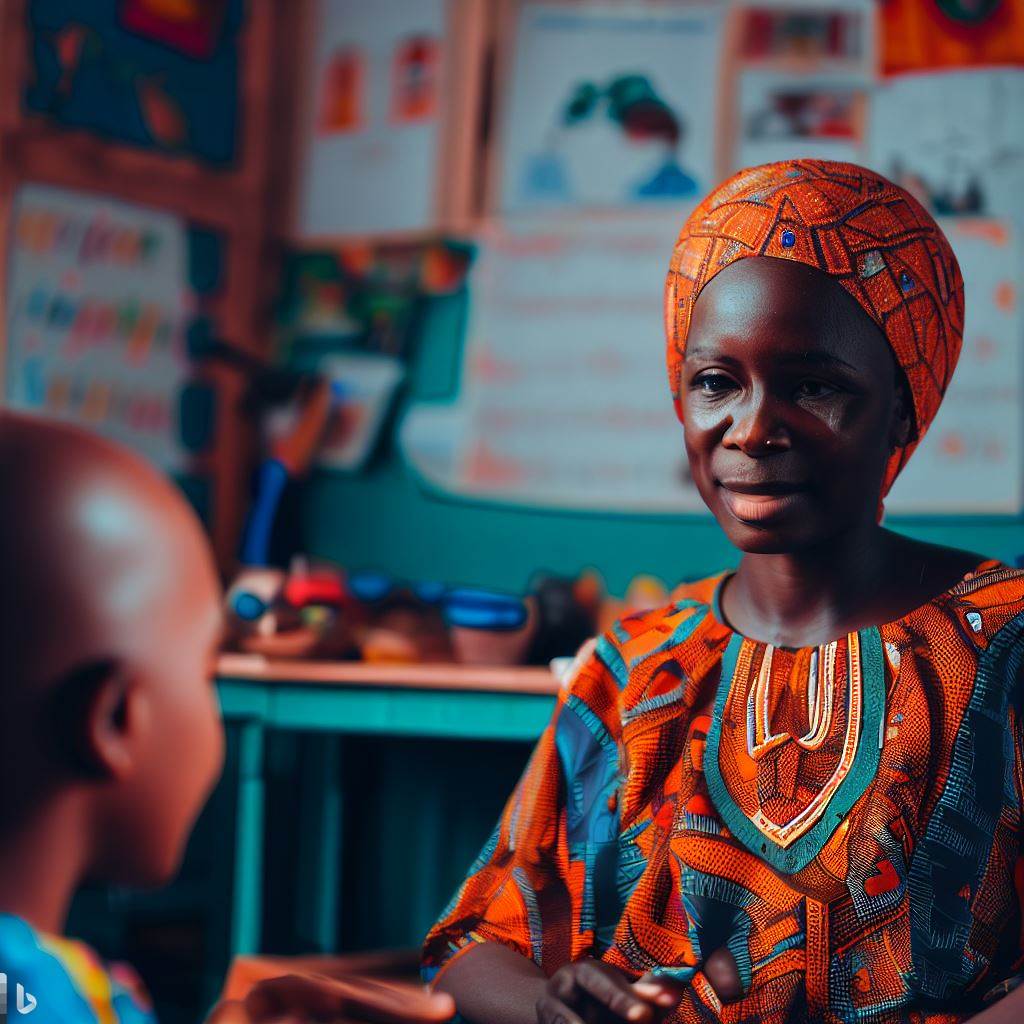Introduction
The Nigerian education system is a complex and diverse system that has evolved over the years. It is influenced by factors such as culture, religion, and socioeconomic status.
Understanding the Nigerian Special Education Curriculum is crucial for educators, parents, and policymakers.
It provides insights into the unique needs of students with disabilities and helps formulate appropriate teaching strategies.
This blog post aims to provide an in-depth understanding of the Nigerian Special Education Curriculum.
In this blog post, we will delve into the Nigerian Special Education Curriculum, exploring its objectives, content, and delivery methods.
By understanding this curriculum, we can create an inclusive and supportive environment for students with special needs. Stay tuned!
Overview of the Nigerian Special Education Curriculum
Special Education tailors learning for students with diverse needs. It focuses on individualized teaching methods, addressing disabilities effectively.
The curriculum aims to foster inclusion, skill development, and independence. It hones academic, social, and life skills, preparing students for active societal participation.
Key Stakeholders Involved in the Curriculum Development Process
- Educators: Experts design and adapt the curriculum to cater to diverse learning requirements, ensuring effective teaching strategies.
- Parents and Caregivers: Their insights and collaboration ensure the curriculum aligns with real-world needs and supports at-home learning.
- Government Bodies: Regulatory authorities oversee curriculum compliance and allocate resources for continuous improvements.
- Specialists: Therapists, speech pathologists, and psychologists provide valuable input to create a holistic curriculum addressing various challenges.
- Community Representatives: Their involvement fosters awareness, reduces stigma, and promotes a supportive environment for special education.
- Students: Involving them empowers active participation in their learning journey, tailoring the curriculum to their unique strengths and aspirations.
- Advocacy Groups: Non-profit organizations and NGOs champion the rights and needs of special education students, influencing curriculum policies.
- Researchers: Ongoing research informs curriculum development, incorporating the latest findings in the field of special education.
In the end, the Nigerian Special Education Curriculum emphasizes individualized learning, holistic growth, and societal integration.
Stakeholders collaborating boost effectiveness, nurturing and realizing each student’s potential for growth.
Read: The Challenges and Triumphs of Special Ed Teachers in Nigeria
Categories of Special Needs Covered in the Curriculum
A. Intellectual disabilities
The Nigerian special education curriculum addresses the needs of students with intellectual disabilities. It focuses on helping these students develop basic academic and life skills.
The curriculum provides individualized instruction and support tailored to their specific needs. Teachers use specialized teaching methods and materials to accommodate their learning challenges.
The goal is to help students with intellectual disabilities reach their full potential and become independent individuals.
B. Learning disabilities
The Nigerian special education curriculum also covers students with learning disabilities. It aims to identify and address their specific learning challenges, such as reading or math difficulties.
The curriculum offers differentiated instruction and alternative assessment methods to support their learning.
Teachers provide accommodations, such as extra time or modified assignments, to help these students succeed.
The focus is on empowering students with learning disabilities to overcome their challenges and achieve academic success.
C. Hearing impairments
Students with hearing impairments are another group included in the Nigerian special education curriculum. The curriculum provides support for students who are deaf or hard of hearing.
It emphasizes the development of communication skills, such as sign language and lip reading. Specialized equipment, such as hearing aids or FM systems, may be used to enhance their learning experience.
The goal is to ensure that students with hearing impairments have equal access to education and can effectively communicate.
D. Visual impairments
The Nigerian special education curriculum recognizes the needs of students with visual impairments. It focuses on enhancing their independence and academic skills through specialized instruction.
Teachers use assistive technology, tactile materials, and braille to facilitate their learning. The curriculum also promotes orientation and mobility skills to help students navigate their surroundings.
The aim is to empower students with visual impairments to succeed academically and become active members of society.
E. Physical disabilities
Students with physical disabilities are adequately covered in the Nigerian special education curriculum. The curriculum addresses their unique needs and provides accommodations for their physical limitations.
It includes adaptive physical education, assistive technology, and modifications to the learning environment.
Teachers focus on fostering self-determination and facilitating independence in daily activities. The goal is to enable students with physical disabilities to participate fully in educational opportunities.
F. Autism spectrum disorders
The Nigerian special education curriculum also caters to students with autism spectrum disorders (ASD). It employs evidence-based practices and individualized support to address their specific challenges.
The curriculum focuses on social skills development, communication, and behavior management strategies.
Teachers create structured learning environments and use visual supports to support students with ASD. The aim is to help these students reach their full potential and thrive in both academic and social settings.
G. Emotional and behavioral disorders
Students with emotional and behavioral disorders receive attention in the Nigerian special education curriculum.
The curriculum provides strategies to address their emotional and behavioral challenges. It emphasizes positive behavior support, counseling, and social-emotional learning.
Teachers implement behavior management techniques and support students in developing coping skills.
The goal is to help students with emotional and behavioral disorders effectively manage their emotions and succeed in school.
Read: Educational Qualifications for Special Education in Nigeria
Structure and Components of the Nigerian Special Education Curriculum
A. Grade levels covered in the curriculum
The Nigerian Special Education Curriculum covers all grade levels, from primary to secondary school.
The Nigerian Special Education Curriculum tailors grade levels to address special needs students’ distinct requirements effectively.
By addressing core subjects and areas of focus, it aims to provide a well-rounded education while accommodating individual differences.
B. Core subjects and areas of focus
- Language and communication skills: Emphasis is placed on improving students’ verbal and written communication abilities.
- Mathematics and numeracy: Students learn basic math skills and numeracy concepts.
- Science and technology: Students explore scientific principles and engage in practical experiments.
- Social and life skills: Focus is placed on developing interpersonal skills, self-awareness, and coping strategies.
- Vocational training: Students acquire vocational skills to enhance their future employability and independence.
The curriculum emphasizes the development of language and communication skills. This is crucial for students with special needs as it enables them to express themselves effectively and connect with others.
Through targeted activities and exercises, students enhance their verbal and written communication abilities, building a foundation for successful social interactions and academic achievement.
In addition to language skills, mathematics and numeracy are key areas of focus.
The curriculum introduces students to basic math concepts and skills, ensuring they have a solid understanding of numbers, shapes, measurements, and calculations.
Incorporating math applications boosts students’ problem-solving and everyday numeracy through practical usage and active learning.
Science and technology are integrated into the curriculum to foster curiosity and hands-on learning experiences.
Students explore scientific concepts through interactive experiments and investigations, developing critical thinking and analytical skills.
The focus extends beyond theoretical knowledge, promoting practical application and technological literacy.
Social and life skills play a crucial role in preparing students with special needs for independent and fulfilling lives.
The curriculum emphasizes the development of interpersonal skills, self-awareness, self-advocacy, and coping strategies.
Students learn how to navigate social situations, build relationships, and develop a sense of autonomy, enabling them to engage meaningfully in society.
C. Adaptations and modifications for students with special needs
- Individualized Education Plans (IEPs): Each student with special needs receives a customized plan that outlines their specific goals and accommodations.
- Assistive technology and resources: Specialized tools and resources are provided to aid students in their learning process.
- Differentiated instruction techniques: Teachers use various teaching methods to cater to the diverse learning needs of students.
Vocational training is another integral component of the curriculum. Recognizing the importance of employment prospects and independence, students receive specialized training in various vocational areas.
This equips them with practical skills and knowledge necessary for future career opportunities and helps foster a sense of purpose and self-confidence.
Adaptations and modifications are embedded within the Nigerian Special Education Curriculum to cater to students with special needs.
Educators craft personalized student IEPs, delineating precise goals, accommodations, and service support to enhance learning.
With the implementation of assistive technology and resources, students can overcome barriers to learning and fully participate in educational activities.
Teachers incorporate differentiated instruction techniques to meet individual learning needs.
Tailoring instruction to abilities and preferences of students with special needs involves employing strategies, materials, and assessments.
This approach fosters inclusive classrooms and ensures that all students have access to quality education.
In fact, the Nigerian Special Education Curriculum encompasses grade levels, core subjects, adaptations, and modifications that cater to the unique needs of students with special needs.
By providing a comprehensive education and promoting individualized support, the curriculum aims to empower students and enable them to reach their full potential.
Read: The Daily Life of a Special Education Teacher in Nigeria

Implementation of the Nigerian Special Education Curriculum
A. Training and Professional Development for Teachers
Teachers undergo extensive training and professional development programs to equip them with the necessary skills.
They receive specialized training on effective teaching strategies for students with special needs.
Ongoing professional development ensures teachers stay up-to-date with the latest research and best practices.
Regular workshops and seminars provide opportunities for teachers to enhance their knowledge and skills.
B. Collaboration between Regular and Special Education Teachers
Collaboration between regular and special education teachers is essential for successful implementation.
Regular and special education teachers work together to plan and deliver instruction that meets the diverse needs of students.
They collaborate in creating individualized education programs (IEPs) and adapting curriculum materials.
Sharing expertise and resources leads to a more inclusive and supportive learning environment.
Read: Insights into the Teaching Profession in Nigeria Today
C. Support Services and Resources for Students with Special Needs
Students with special needs receive a range of support services and resources to facilitate their learning.
Special education classrooms are equipped with appropriate instructional materials and assistive technologies.
Specialists such as speech therapists, occupational therapists, and psychologists provide individualized interventions.
Counseling services and social-emotional support are also available to address the holistic needs of students.
D. Evaluation and Assessment Strategies
Accurate evaluation and assessment are critical in measuring the effectiveness of the special education curriculum.
Various assessment methods, including observation, portfolios, and standardized tests, are used to assess student progress.
Individualized assessments are conducted to determine each student’s current level of functioning and areas of improvement.
Regular progress tracking and reporting ensure that interventions are adjusted based on individual needs and growth.
1. Assessment Methods Used
Observation allows teachers to gather information about students’ behavior and engagement in different learning activities.
Portfolios showcase students’ progress and provide evidence of their achievements over time.
Standardized tests are administered to assess students’ academic skills and compare their performance with national standards.
2. Individual Progress Tracking and Reporting
Individualized assessment data is used to track students’ progress and identify areas that require additional support.
Regular feedback and progress reports are shared with parents, enabling them to actively participate in their child’s education.
Tracking individual progress helps in making informed decisions about instructional strategies and interventions.
In a nutshell, the successful implementation of the Nigerian Special Education Curriculum requires various components.
Training and professional development prepare teachers, while collaboration enhances instruction and promotes inclusivity.
Support services and resources cater to the unique needs of students, and evaluation strategies ensure effective outcomes.
By employing these strategies, Nigeria can create an inclusive and empowering education system for all students.
Read: A Comprehensive Overview of Special Education in Nigeria
Publish Your Professional Profile, Business or Brand
Showcase your expertise, gain trust, and boost visibility instantly on Professions.ng.
Publish NowChallenges and Solutions in Implementing the Nigerian Special Education Curriculum
A. Insufficient funding and resources
- Lack of financial support hampers the effective implementation of the Nigerian special education curriculum.
- Inadequate resources such as specialized materials, assistive technology, and classroom infrastructure impede progress.
- Limited funding leads to a shortage of trained special education teachers and therapists.
- Without proper funding and resources, the curriculum’s goals cannot be fully achieved.
B. Limited accessibility and inclusive practices
Many children with disabilities face barriers in accessing quality education due to physical, attitudinal, and systemic challenges.
Limited inclusive practices prevent students with disabilities from fully participating in regular classroom activities.
Inadequate training on inclusive education for regular teachers contributes to the lack of accessibility.
Attitudinal barriers from both educators and society further limit the opportunities available to children with disabilities.
C. Strategies to overcome challenges
1. Advocacy for increased funding and support
- Raise awareness among policymakers and the public about the importance of financing special education adequately.
- Lobby for increased government funding for special education programs and services.
- Seek support from non-governmental organizations and international bodies to supplement available resources.
2. Training programs for teachers and parents
- Provide specialized training to regular teachers on inclusive practices and teaching methods for students with disabilities.
- Equip special education teachers with updated knowledge and skills through continuous professional development.
- Offer workshops and seminars to parents to enhance their understanding and support for their children’s education.
3. Strengthening collaboration between stakeholders
- Foster collaboration between educators, parents, special education professionals, and policymakers.
- Establish partnerships with universities and research institutions to conduct studies on special education in Nigeria.
- Create networks and support groups for parents of children with disabilities to share experiences and resources.
In a nutshell, implementing the Nigerian special education curriculum faces challenges such as insufficient funding, limited accessibility, and a lack of inclusive practices.
Advocating for funding, training teachers and parents, and fostering stakeholder collaboration overcome these challenges effectively.
It is crucial to prioritize the needs of students with disabilities and provide them with the necessary resources and support to achieve their full potential.
Conclusion
A recap of key points discussed is important for building understanding of the Nigerian Special Education Curriculum.
Inclusive education is crucial for the success of all students, regardless of their abilities or disabilities.
It is encouraged for further exploration and understanding of the Nigerian Special Education Curriculum by educators, parents, and policymakers.
This will help create a more inclusive and equal educational environment for all.




